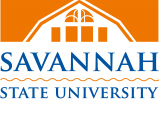|
Required Materials: |
|
REQUIRED TEXTS
1 Richard J. Payne. Global Issues: Politics, Economics, and Culture. 2rd edition. Pearson/Longman: New York, NY. 2009.
2 Additional readings: David Held, Anthony McGrew, David Goldblatt, and Jonathan Perraton. 1999. Global Transformations: Politics, Economics, and Culture, Palo Alto, CA: Stanford University Press.
SUGGESTED TEXT
1. American Psychological Association. Publication Manual of the American Psychological Association. 6th edition. July 2009.
________________________________________
|
|
Technical Requirements: |
|
Class attendance and punctuality are mandatory. *However, active class participation is strongly encouraged.* Each absence costs 10 points that will be deducted from the 100 points allocated to class participation and attendance. I take the roll at the beginning of class. Students who come late will be considered absent and will not be allowed in the classroom. Secondly, while class, will be a fun and casual atmosphere, I expect each student to follow University dress codes and conducts.
There will be four exams based on the reading assignments and class lectures. The exams will be designed to assess the student’s level of comprehension. Also, the Map - tests will be designed to assess the student’s level of comprehension about global geography and how our planet is shaped by cultural and political divisions.
In addition, students will participate in group projects on controversial global issues. The group projects will be a required and presented orally in class. The group research presentation will serves as a supplemental component of the class. The objective of these assignments is to make students able to find information, retrieve and evaluate it before using it and understand how to relate local issues to a global perspective. The assignments will consist of a proposal, community service and final presentation.
________________________________________
GRADING STANDARDS/SCALE
1. Class participation and attendance: 150 points
2. (2) Map – tests & Short Papers: 200 points
3. (4) Exams:
Exam 1 100 points
Exam 2 100 points
Exam 3 100 points
Final Exam 100 points
4. Group Project on global issues :
Debate on Ethnocentrism and Modern Thought 100 points
5. Group Research Presentation:
Presentation Proposal & Outline 50 points
(3) Individual Community Service Hours Completed 50 points
Group Research Paper Presentation 100 points
Grading Scale: A= 1100-940; B=939-820; C=829-740; D= 739-580; F= 579 and below
________________________________________
METHODS of INSTRUCTION
The instruction in the course will be provided through short lectures, films, speakers and active/ interactive discussions. The instructor will introduce the topic and highlight the key questions pertaining to the topic. The students will be expected to read the materials before coming to class. Reading assignments will be given to help students be active learners in class.
The debate on Ethnocentrism and Modern Thought will also help students understand the arguments presented in both sides of the issue. In short, active class discussion will be the cornerstone of the course.
________________________________________
COURSE POLICIES
Class attendance and punctuality are mandatory. The Instructor will take the roll at the beginning of each class session. Late students will not be allowed in class. They will be considered absent. Students will lose 10 points for each unjustified absence or absence due to tardiness. These points will be deducted from the 100 points allocated to class attendance and participation.
In class I am doing a one-person performance show. It is a matinee. Chatting to your
neighbor, cell phone use, using wireless for non-class related matters, or reading noncourse related materials, are grounds for removal from class – as is failing to laugh at my jokes
There will be no make-up assignment or exam unless the student presents a valid excuse. No excuse will be accepted when it is submitted more than a week after the assignment was due or the test was taken. The important dates for work submission are included in this syllabus. Therefore, students should be able to get organized accordingly. Students who have justified excuses will take their make-up, will make up their test and must schedule an appointment with me to make up their tests.
All assignments must be typed (double spaced) and submitted at the beginning of each class session on the due date, following the APA style guide. Late assignments may be accepted upon presentation of proper documentation pertaining to health or other emergencies. Students are not allowed to submit assignments in the Instructor’s Office. Furthermore, the Instructor will not accept assignments submitted via email.
Academic dishonesty will be penalized. This includes cheating and plagiarizing or using the work of another person. Academic dishonesty will not be tolerated in this course. Savannah State University states that every member of its academic community shares the historic and traditional commitment to honesty, integrity and the search for truth. For further clarification plagiarism is described as, “the representation of another’s works or ideas as one’s own; it includes unacknowledged word for word use/or paraphrasing of another person’s work, and/or the inappropriate unacknowledged use of another person’s ideas.”
________________________________________
DISABILITY ACCOMMODATIONS
SSU is committed to social justice. I agree with that commitment and expect this course to have a learning environment based upon open communication, mutual respect, and non-discrimination. Our University does not discriminate on the basis of race, gender, age, disability, veteran status, religion, sexual orientation, color or national origin. If a student has a documented and or declared disability or any significant learning or health impairment, reasonable accommodations (support) will be provided if requested by the student according to the recommendations of the Office of Counseling and Disability services: 912-356-2202, Room 233, 2nd floor in King Frazier Annex.
________________________________________
CAVEAT
This syllabus outlines the general plan of the course. In case of extenuating circumstances, the Instructor will make appropriate changes in order to adapt the syllabus to new realities. Students are required to keep up with any changes made by the Instructor.
________________________________________
|


